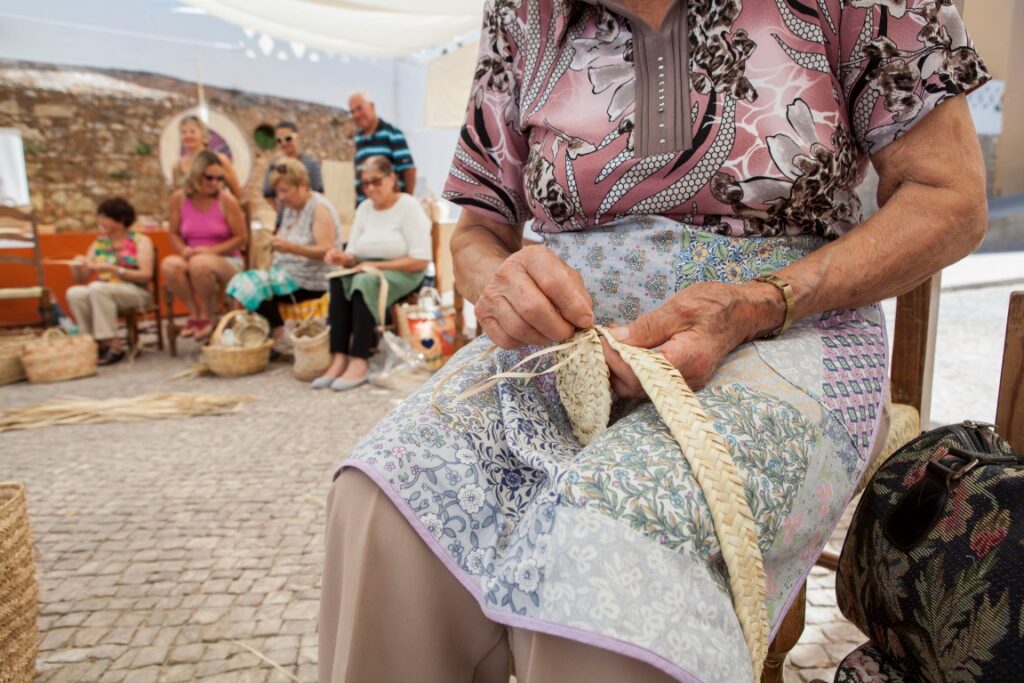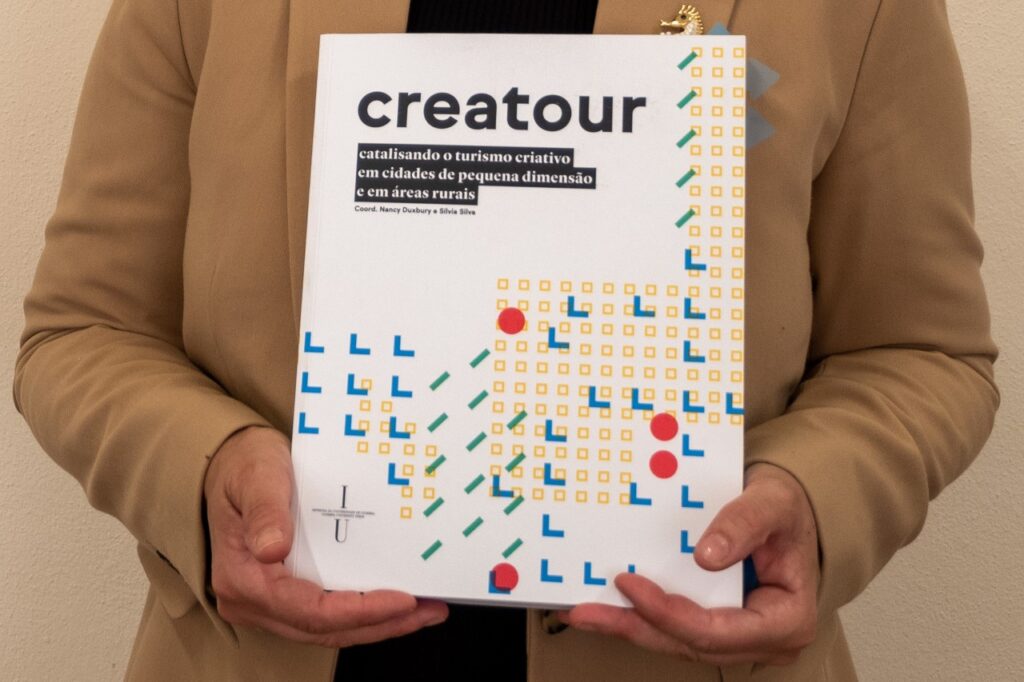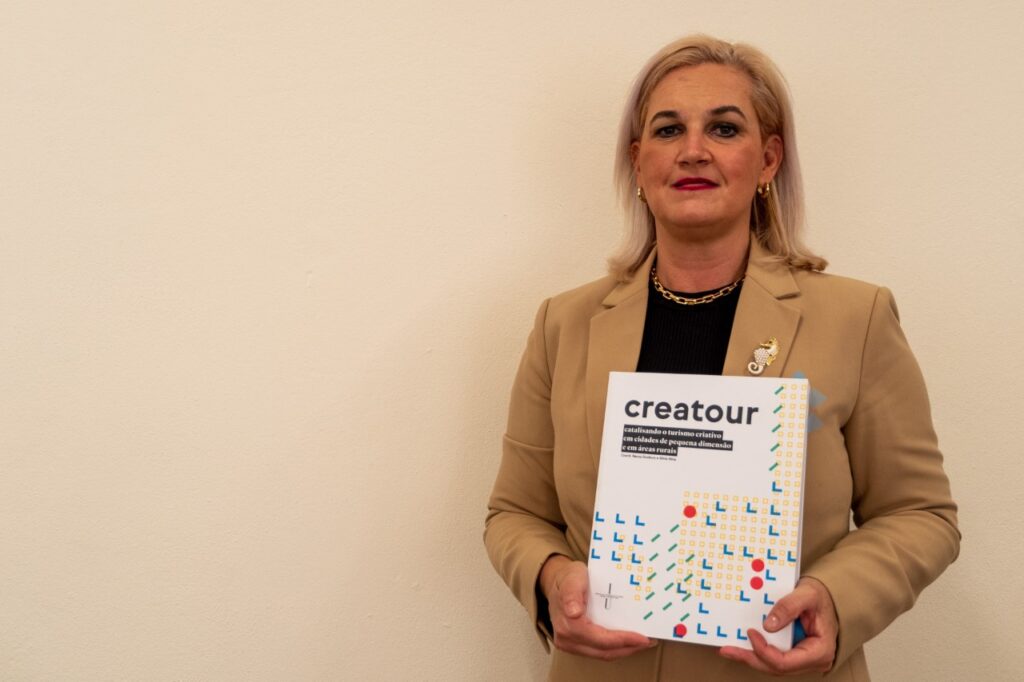«In the Algarve, there is more to experience than a good dive». The sentence, written by the Algarve researchers who participated in CREATOUR, ends up summarizing what this national project, whose idea was to «test new experiences related to tourism, involving creativity», represents for the Algarve region.
The book “CREATOUR: Catalyzing creative tourism in small towns and rural areas”, which was presented on Friday at Palácio Gama Lobos, in Loulé, is divided into four chapters, one of which is dedicated to the Algarve, prepared by a team coordinated by Alexandra Gonçalves, an Algarve researcher and director of the School of Management, Hospitality and Tourism (ESGHT) at the University of Algarve.
In it can be found ten testimonies of researchers and promoters of experiences in the Algarve, which join others from various parts of the country, since five research centers are involved in Creatour.
In the case of the Algarve, the project partner was CinTurs – Research Center for Tourism, Sustainability and Well-being, from UAlg.
«The project ended in June and is funded by the Foundation for Science and Technology. It is led by the Center for Social Studies of the University of Coimbra and also involves research centers from ISCTE, the University of Minho and the University of Évora, in addition to us», revealed the Algarve researcher.
«In our case, the team was made up of four people: me, professor João Filipe Marques, who has a doctorate in sociology, professor Miriam Tavares, who is in visual arts and communication, and Sónia Cabeça, a postdoctoral fellow. PhD, who worked during these four and a half years with us directly, in a post-doctoral study, and who supported all the research», added Alexandra Gonçalves.
CREATOUR, he pointed out, is a research project «different from the others, because it is geared towards action», which made it possible to have «very rich results», which allowed the launch of several publications - although the one that has now been presented is the corollary of all work done.

«We called for pilot projects to develop these experiences, which could involve associations, city councils or companies. In a first phase, there were five, in a second phase, as many others», he revealed.
In order to implement the creative tourism ideas that resulted from joint work, the focus was on structuring the initiatives «from the idea to the conception of the tourist experience, to the definition of the price and of how tourists could be brought to this type of proposals. ».
At the same time, it also invested in working with existing initiatives, such as the Loulé Criativo project, which «is an excellent example, has served as a motto for other regions and is a very sustainable practice in the territory».
«Both Loulé Criativo and the company ProActiveTur, which was an important agent of dynamism of this project, were with us from the beginning, similar to what happened with In Loco, Odiana and Espírito da terra, a Pedagogical Farm in Boliqueime» , illustrated.
Other CREATOUR partners in the Algarve were the company Barroca, Centro Ciência Viva do Algarve, Algarve Foodtours and Tertúlia Algarvia. The Backup association, from VRSA, was also connected, but in the meantime has stopped its activity.
The proposals that were created “never involve many people. There are groups, workshops and workshops with a small number of people, so the possibility of interacting or controlling a problem is always easier than in a mass tourism where people have other concerns».
It is these experiences that are made known in the ten texts related to the Algarve, some of which «were shared and were written by different hands, with the participation of the people who developed these experiences».

Once the project is completed, an “informal network” remains in the Algarve and in other parts of the country. The associations know each other, they know who is on the ground, they have databases of artisans, so they know who to contact whenever they need to».
«Then at the national level it was interesting, we also made interregional exchanges, for them to get to know and see what each one was doing in their region. It was very enriching. Internationally, there is also a movement. The headquarters of the creative tourism network is in Barcelona – precisely because Barcelona realized that it had to change its cultural tourism model. They provide training and have many good practices in this network», explained Alexandra Gonçalves.
CREATOUR is led by the University of Coimbra and is responsible for Nancy Duxbury, a senior researcher born in Canada. The project is based on a 20-year-old concept, thought up by Greg Richards, «an expert in the field of cultural tourism who realized, at a certain point, that this type of tourism was also becoming massified».
Greg Richards, who is a consultant for CREATOUR, noted that there were “big cities known for their cultural dimension”, such as “Venice, Bruges or Barcelona”, which were “becoming overpopulated with tourists and creating negative effects on the local culture itself”. .
«Then emerges, almost in contrast, a movement associated with this Mediterranean concept of interacting with the community, learning from the local culture, getting to know the language and traditions of the places», explained Alexandra Gonçalves.
From here, a niche was created, aimed at people who «come in smaller numbers, but who, as a rule, have a higher level of education, already know many places, have frequent travel practices and who will try to get to know the other. This ability to interact, escape everyday stress and learn from others is very important».
«We need to fight seasonality, to value more our interior, our local culture and this is one of the ways», believes the director of ESGHT at UAlg.
«These are sustainable practices because they use resources of the time, the territory, therefore, there is no excessive use of resources here. The project is multidisciplinary, involving the arts, economics, marketing and tourism. Therefore, it brings together people with different areas of training and knowledge, precisely to try to cover everything necessary for the idea to stop being an idea and become a sustainable experience. These are experiences in which there is learning, but it is learning that is not transmission, there is fun, people leave with a smile on their face», concludes Alexandra Gonçalves.




















Comments